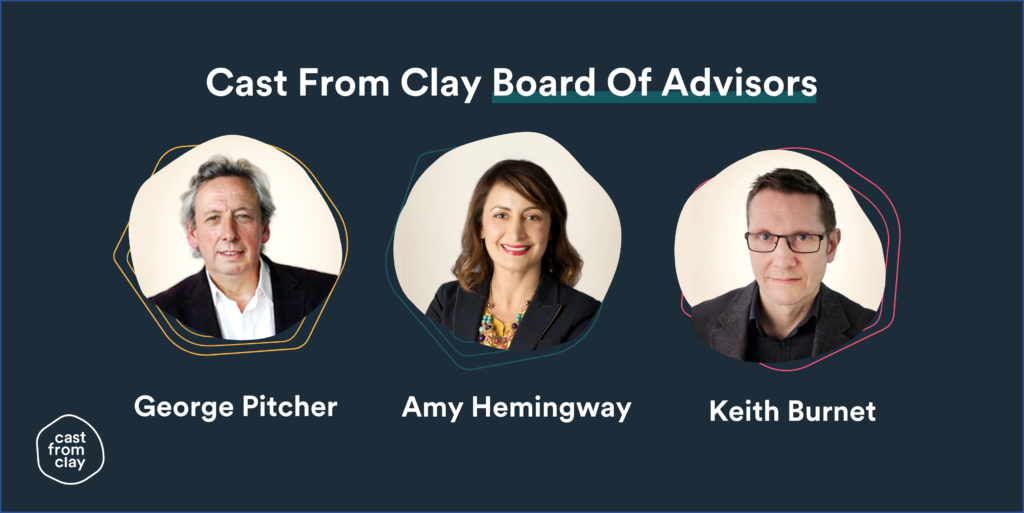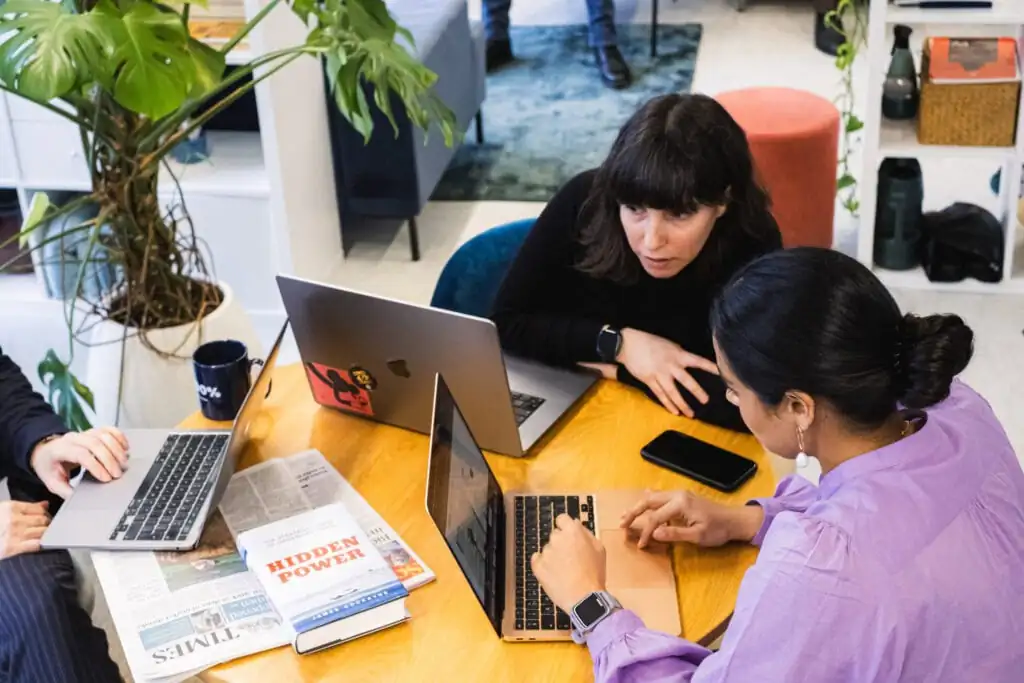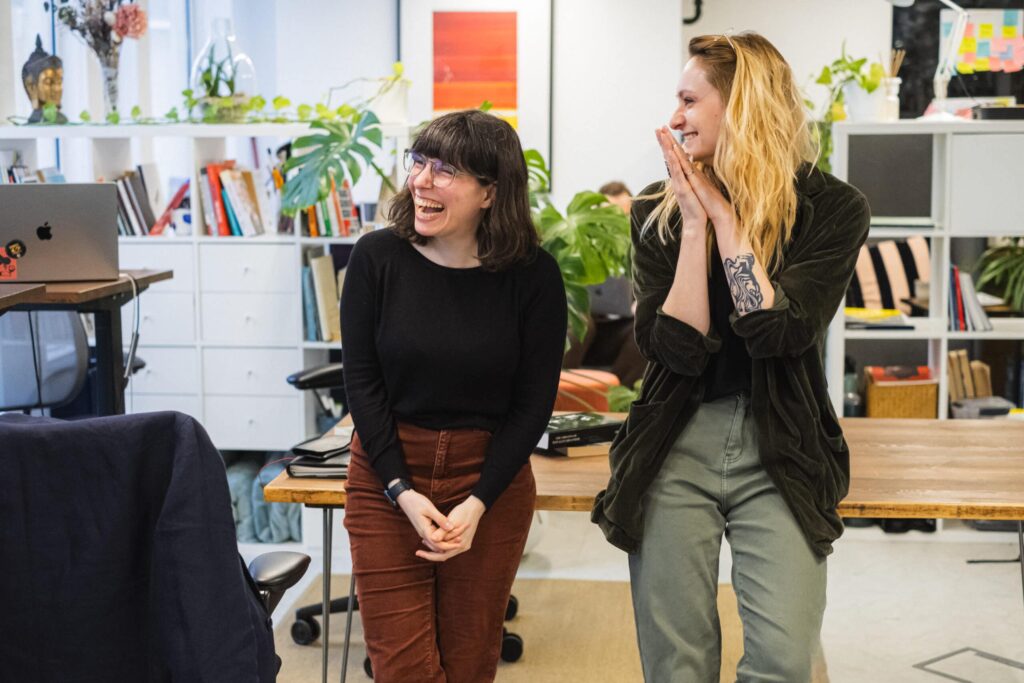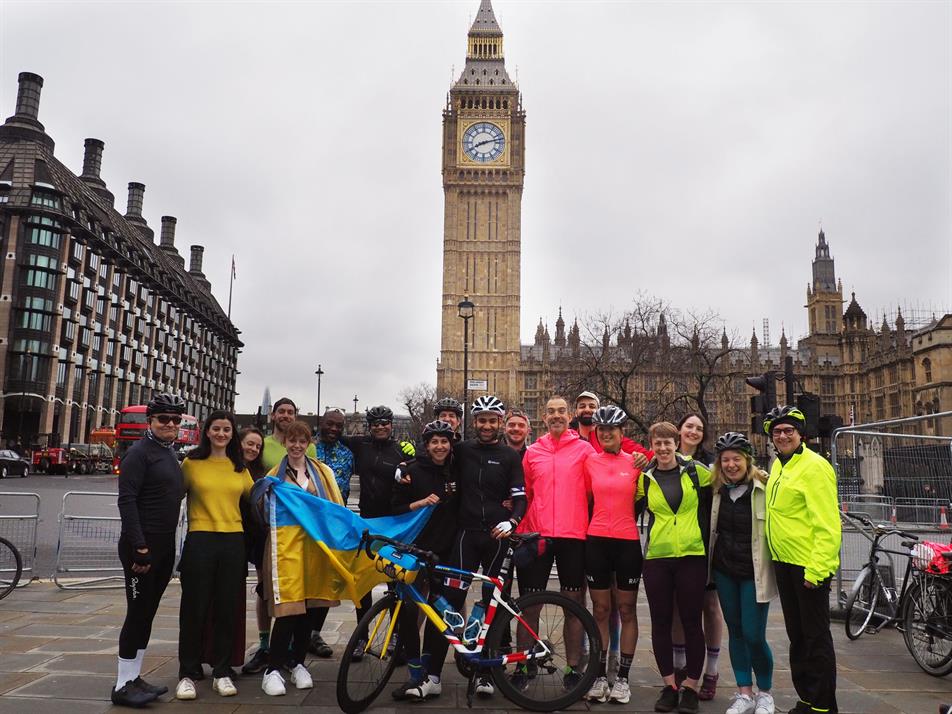An outsider’s point of view brings a fresh perspective. An honest review shows you how to improve.
A lot of our work centres on this idea. We aim to provide that fresh perspective to help think tanks, policy institutes, research centres and academia – trusted advisors to many in society – to up their game. That’s because we believe that if you value something, you want to make it better. We all need people in our lives who can help us do that.
Because we know the worth of trusted advisors and critical friends, we’ve formalised the relationship with some of ours in our new Board of Advisors.

Amy, George and Keith come from different backgrounds and bring different strengths to the Board. But they all have one thing in common: they’ve each told us we can be better.
The Board of Advisors will work closely with Cast From Clay partners Tom and Aidan to elevate our work and help us help our clients achieve even more.
To give you a taste of what they will bring, we asked them about the challenges that think tanks, research institutes, policy experts and academia face right now, and how we can improve our offer to tackle these challenges.
Here’s what they said:
Cultivate trust
A longer version of the “feedback is a gift” saying goes: “Feedback is a gift only when it comes from a person who has earned your trust.”
We talk to policy experts about the value of trust and the importance of consistent, trustworthy behaviour. Our advice includes tips like: work transparently, listen to your audiences to meet them where they are, and do what you say you’re going to do. It’s vital we take our own advice too. We must make sure we’re really earning it among our audiences before we dole out direction.
Our Board member Amy Hemingway, is hopeful about growing public trust in experts:
“When you look at a topic like climate change, scientists and experts are the most trusted voices. We need those experts in leadership positions.”
She should know. She spent years stewarding Edelman’s annual Trust Barometer. Helping our clients to continue building trustworthy relationships with their audiences is central to our strategy.
“When you look at a topic like climate change, scientists and experts are the most trusted voices. We need those experts in leadership positions.”
Amy Hemingway
Don’t be afraid to challenge
As policy experts will know well, being a valuable advisor involves giving honest critique and tough love. Influencing others to make decisions that benefit society is a delicate balance of carrot and stick.
George Pitcher, journalist, author, Anglican priest and former co-founder of communications firm Luther Pendragon is a fan of healthy challenge:
“Developing ideas is a worthwhile exercise. And, excitingly, it’s about being shown how to relinquish control. Because you don’t control an argument – you participate in it. And we should be having more good arguments and enjoying them.”
“We need to test the right to be wrong under safe, clinical conditions. But we do need to know what we’re talking about if we’re to contribute to critical issues that affect our economies and societies. I hope Cast From Clay can call out sloppy thinking (in themselves and others) and give enlightened and productive expertise the air and elbow space to prosper.”
“You don’t control an argument – you participate in it. And we should be having more good arguments and enjoying them.”
George Pitcher
Demonstrate a willingness to act
We’ve already mentioned that trust is doing what you say you will.
For Amy, building trust further is about showing the ability to do as well as think and say.
“Government is experiencing a huge trust deficit, especially with bungled responses to the Covid-19 pandemic. It’s not even seen as competent. Policy experts, then, have a big opportunity to play a role here. To hold government to account and, critically, to use their influence to cultivate public and government support for new policies and programmes. They can actually help drive the ball forward.
Some dynamism, then? “It’s more capability,” she clarifies. “To complement their substance with action.”
That’s definitely a lesson we’re trying to act on too – explaining more of the “how” rather than just the “why”, so everyone can get better.
Another of our Board members, Keith Burnet, former Chatham House Managing Director of Communications and Publishing, agrees. “I’d really like to see Cast From Clay crank up its influence with research and policy organisations with a focus on action and impact as well as understanding.”
Connect your expertise to the bigger picture
“There are so many competing demands and pressing issues vying for the time and attention of policymakers and the general public. This means there is now a real urgency around enabling think tanks, universities and NGOs to more effectively communicate their work to those key audiences,” says Keith.
“There is now a real urgency around enabling think tanks, universities and NGOs to more effectively communicate their work to those key audiences.”
Keith Burnet
Luckily, this is our specialism. “Cast From Clay’s work is really bespoke at the policy expert level,” says Amy. “They think about policy and experts all day long.”
But if there’s one thing we’ve learned from think tanks it’s that having a clear focus is good, but it can sometimes blinker us to other opportunities. General public audiences are a long-neglected audience for policy experts. The public are important for shaping a welcoming environment for new policies and building a mandate for think tanks’ usual audiences: policymakers.
We can ask ourselves what we’ve overlooked, too. Perhaps we’re missing something in the interconnectedness of civil society by focusing too closely on one section of it. There’s a lot of cross-over between think tanks and NGOs, so we’re beginning to work more in that space. Charities, NGOs and civil society groups make natural partners for those in the policy research space – so we encourage you to join us in branching out.
We’re really excited about what our Board will help us achieve in 2022 and beyond. They’re there to hold us to account, tell us what we’re getting right and what we’re not, and ultimately make us better.
Because, when it comes to lofty goals like strengthening democracy and connecting people with policy, we can’t be marking our own homework.





